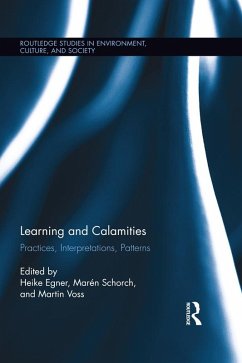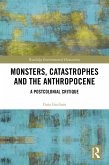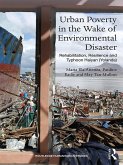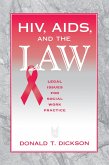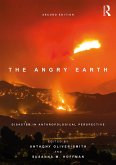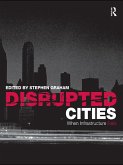Learning and Calamities (eBook, PDF)
Practices, Interpretations, Patterns
Redaktion: Egner, Heike; Voss, Martin; Schorch, Marén
54,95 €
54,95 €
inkl. MwSt.
Sofort per Download lieferbar

27 °P sammeln
54,95 €
Als Download kaufen

54,95 €
inkl. MwSt.
Sofort per Download lieferbar

27 °P sammeln
Jetzt verschenken
Alle Infos zum eBook verschenken
54,95 €
inkl. MwSt.
Sofort per Download lieferbar
Alle Infos zum eBook verschenken

27 °P sammeln
Learning and Calamities (eBook, PDF)
Practices, Interpretations, Patterns
Redaktion: Egner, Heike; Voss, Martin; Schorch, Marén
- Format: PDF
- Merkliste
- Auf die Merkliste
- Bewerten Bewerten
- Teilen
- Produkt teilen
- Produkterinnerung
- Produkterinnerung

Bitte loggen Sie sich zunächst in Ihr Kundenkonto ein oder registrieren Sie sich bei
bücher.de, um das eBook-Abo tolino select nutzen zu können.
Hier können Sie sich einloggen
Hier können Sie sich einloggen
Sie sind bereits eingeloggt. Klicken Sie auf 2. tolino select Abo, um fortzufahren.

Bitte loggen Sie sich zunächst in Ihr Kundenkonto ein oder registrieren Sie sich bei bücher.de, um das eBook-Abo tolino select nutzen zu können.
Despite the widespread opinion that calamities foster learning processes, there is much evidence that failure remains the norm. This book explores whether learning in the context of calamities occurs at all, and if so, under which conditions learned knowledge and practices can be achieved and preserved on a societal level in the long run.
- Geräte: PC
- mit Kopierschutz
- eBook Hilfe
- Größe: 1.6MB
Andere Kunden interessierten sich auch für
![Monsters, Catastrophes and the Anthropocene (eBook, PDF) Monsters, Catastrophes and the Anthropocene (eBook, PDF)]() Gaia GiulianiMonsters, Catastrophes and the Anthropocene (eBook, PDF)42,95 €
Gaia GiulianiMonsters, Catastrophes and the Anthropocene (eBook, PDF)42,95 €![China's Grain Economy (eBook, PDF) China's Grain Economy (eBook, PDF)]() Liming WangChina's Grain Economy (eBook, PDF)25,95 €
Liming WangChina's Grain Economy (eBook, PDF)25,95 €![Urban Poverty in the Wake of Environmental Disaster (eBook, PDF) Urban Poverty in the Wake of Environmental Disaster (eBook, PDF)]() Maria Ela AtienzaUrban Poverty in the Wake of Environmental Disaster (eBook, PDF)43,95 €
Maria Ela AtienzaUrban Poverty in the Wake of Environmental Disaster (eBook, PDF)43,95 €![HIV, AIDS, and the Law (eBook, PDF) HIV, AIDS, and the Law (eBook, PDF)]() Donald DicksonHIV, AIDS, and the Law (eBook, PDF)48,95 €
Donald DicksonHIV, AIDS, and the Law (eBook, PDF)48,95 €![Faith in Foreign Aid (eBook, PDF) Faith in Foreign Aid (eBook, PDF)]() Susan Turner HaynesFaith in Foreign Aid (eBook, PDF)40,95 €
Susan Turner HaynesFaith in Foreign Aid (eBook, PDF)40,95 €![The Angry Earth (eBook, PDF) The Angry Earth (eBook, PDF)]() The Angry Earth (eBook, PDF)52,95 €
The Angry Earth (eBook, PDF)52,95 €![Disrupted Cities (eBook, PDF) Disrupted Cities (eBook, PDF)]() Disrupted Cities (eBook, PDF)48,95 €
Disrupted Cities (eBook, PDF)48,95 €-
-
-
Despite the widespread opinion that calamities foster learning processes, there is much evidence that failure remains the norm. This book explores whether learning in the context of calamities occurs at all, and if so, under which conditions learned knowledge and practices can be achieved and preserved on a societal level in the long run.
Dieser Download kann aus rechtlichen Gründen nur mit Rechnungsadresse in A, B, BG, CY, CZ, D, DK, EW, E, FIN, F, GR, HR, H, IRL, I, LT, L, LR, M, NL, PL, P, R, S, SLO, SK ausgeliefert werden.
Produktdetails
- Produktdetails
- Verlag: Taylor & Francis eBooks
- Seitenzahl: 334
- Erscheinungstermin: 13. August 2014
- Englisch
- ISBN-13: 9781134475810
- Artikelnr.: 41501486
- Verlag: Taylor & Francis eBooks
- Seitenzahl: 334
- Erscheinungstermin: 13. August 2014
- Englisch
- ISBN-13: 9781134475810
- Artikelnr.: 41501486
- Herstellerkennzeichnung Die Herstellerinformationen sind derzeit nicht verfügbar.
Heike Egner is Professor of Geography and Regional Studies at the Alpen-Adria-Universität Klagenfurt (Austria). Marén Schorch is a Research Assistant at the University of Siegen (Germany). Martin Voss is head of the Disaster Research Unit at Freie Universität Berlin (Germany).
Foreword Kathleen Tierney. Acknowledgments. 1. Introduction: Can Societies
Learn from Calamities? Heike Egner, Marén Schorch, and Martin Voss Part I:
Opening the Fields of Learning and Calamities 2. Learning from Disasters in
an Unsafe World: Considerations from a Psychoanalytical Ethnological
Perspective Bernd Rieken 3. Learning About Disasters from Animals Greg
Bankoff 4. Beyond Experiential Learning in Disaster and Development
Communication Andrew E. Collins Part II: Learning from History? 5. "The
Monster Swallows You": Disaster Memory and Risk Culture in Western Europe,
1500-2000 Christian Pfister 6. A Disaster in Slow Motion: The Smoke Menace
in Urban-Industrial Britain Stephen Mosley 7. Historia Magistra Vitae, as
the Saying Goes: Why Societies Do Not Necessarily Learn from Past Disasters
Uwe Lübken Part III: Educational Concepts for Disaster Preparedness 8.
Using a Spare-Time University for Disaster Risk Reduction Education Ilan
Kelman, Marla Petal, and Michael H. Glantz 9. Communicating Actionable
Risk: The Challenge of Communicating Risk to Motivate Preparedness in the
Absence of Calamity Michele M. Wood 10. Critical Reflection on Disaster
Prevention Education Marla Petal Part IV: Organizational Patterns of
Interpretation and Practices of Learning 11. Normalization and its
Discontents: Organizational Learning from Disaster Sven Kette and Hendrik
Vollmer 12. Analyses of Natural Disasters and Their Contribution to Changes
in Natural Hazard Management in Switzerland Michael Bründl 13. How Not to
Learn: Resilience in the Study of Disaster Benigno A. Aguirre and Eric Best
Part V: Societal Patterns of Interpretation and Practices of Learning 14.
When Push Comes to Shove: The Framing of Need in Disaster Relief Efforts
Tricia Wachtendorf, Samantha Penta, and Mary M. Nelan 15. Reduced Learning
Processes Due to Biopolitical Patterns of Interpretation: Michel Foucault
and the Contamination Disaster Matthias Hofmann 16. Science versus
Metaphysics. The Importance of Everyday Life Experience for the
Interpretation of Disaster Elísio Macamo and Dieter Neubert Part VI:
Closing 17. Learning and Calamities-What Have We Learned?: Steps Towards an
Integrative Framework Heike Egner and Marén Schorch
Learn from Calamities? Heike Egner, Marén Schorch, and Martin Voss Part I:
Opening the Fields of Learning and Calamities 2. Learning from Disasters in
an Unsafe World: Considerations from a Psychoanalytical Ethnological
Perspective Bernd Rieken 3. Learning About Disasters from Animals Greg
Bankoff 4. Beyond Experiential Learning in Disaster and Development
Communication Andrew E. Collins Part II: Learning from History? 5. "The
Monster Swallows You": Disaster Memory and Risk Culture in Western Europe,
1500-2000 Christian Pfister 6. A Disaster in Slow Motion: The Smoke Menace
in Urban-Industrial Britain Stephen Mosley 7. Historia Magistra Vitae, as
the Saying Goes: Why Societies Do Not Necessarily Learn from Past Disasters
Uwe Lübken Part III: Educational Concepts for Disaster Preparedness 8.
Using a Spare-Time University for Disaster Risk Reduction Education Ilan
Kelman, Marla Petal, and Michael H. Glantz 9. Communicating Actionable
Risk: The Challenge of Communicating Risk to Motivate Preparedness in the
Absence of Calamity Michele M. Wood 10. Critical Reflection on Disaster
Prevention Education Marla Petal Part IV: Organizational Patterns of
Interpretation and Practices of Learning 11. Normalization and its
Discontents: Organizational Learning from Disaster Sven Kette and Hendrik
Vollmer 12. Analyses of Natural Disasters and Their Contribution to Changes
in Natural Hazard Management in Switzerland Michael Bründl 13. How Not to
Learn: Resilience in the Study of Disaster Benigno A. Aguirre and Eric Best
Part V: Societal Patterns of Interpretation and Practices of Learning 14.
When Push Comes to Shove: The Framing of Need in Disaster Relief Efforts
Tricia Wachtendorf, Samantha Penta, and Mary M. Nelan 15. Reduced Learning
Processes Due to Biopolitical Patterns of Interpretation: Michel Foucault
and the Contamination Disaster Matthias Hofmann 16. Science versus
Metaphysics. The Importance of Everyday Life Experience for the
Interpretation of Disaster Elísio Macamo and Dieter Neubert Part VI:
Closing 17. Learning and Calamities-What Have We Learned?: Steps Towards an
Integrative Framework Heike Egner and Marén Schorch
Foreword Kathleen Tierney. Acknowledgments. 1. Introduction: Can Societies
Learn from Calamities? Heike Egner, Marén Schorch, and Martin Voss Part I:
Opening the Fields of Learning and Calamities 2. Learning from Disasters in
an Unsafe World: Considerations from a Psychoanalytical Ethnological
Perspective Bernd Rieken 3. Learning About Disasters from Animals Greg
Bankoff 4. Beyond Experiential Learning in Disaster and Development
Communication Andrew E. Collins Part II: Learning from History? 5. "The
Monster Swallows You": Disaster Memory and Risk Culture in Western Europe,
1500-2000 Christian Pfister 6. A Disaster in Slow Motion: The Smoke Menace
in Urban-Industrial Britain Stephen Mosley 7. Historia Magistra Vitae, as
the Saying Goes: Why Societies Do Not Necessarily Learn from Past Disasters
Uwe Lübken Part III: Educational Concepts for Disaster Preparedness 8.
Using a Spare-Time University for Disaster Risk Reduction Education Ilan
Kelman, Marla Petal, and Michael H. Glantz 9. Communicating Actionable
Risk: The Challenge of Communicating Risk to Motivate Preparedness in the
Absence of Calamity Michele M. Wood 10. Critical Reflection on Disaster
Prevention Education Marla Petal Part IV: Organizational Patterns of
Interpretation and Practices of Learning 11. Normalization and its
Discontents: Organizational Learning from Disaster Sven Kette and Hendrik
Vollmer 12. Analyses of Natural Disasters and Their Contribution to Changes
in Natural Hazard Management in Switzerland Michael Bründl 13. How Not to
Learn: Resilience in the Study of Disaster Benigno A. Aguirre and Eric Best
Part V: Societal Patterns of Interpretation and Practices of Learning 14.
When Push Comes to Shove: The Framing of Need in Disaster Relief Efforts
Tricia Wachtendorf, Samantha Penta, and Mary M. Nelan 15. Reduced Learning
Processes Due to Biopolitical Patterns of Interpretation: Michel Foucault
and the Contamination Disaster Matthias Hofmann 16. Science versus
Metaphysics. The Importance of Everyday Life Experience for the
Interpretation of Disaster Elísio Macamo and Dieter Neubert Part VI:
Closing 17. Learning and Calamities-What Have We Learned?: Steps Towards an
Integrative Framework Heike Egner and Marén Schorch
Learn from Calamities? Heike Egner, Marén Schorch, and Martin Voss Part I:
Opening the Fields of Learning and Calamities 2. Learning from Disasters in
an Unsafe World: Considerations from a Psychoanalytical Ethnological
Perspective Bernd Rieken 3. Learning About Disasters from Animals Greg
Bankoff 4. Beyond Experiential Learning in Disaster and Development
Communication Andrew E. Collins Part II: Learning from History? 5. "The
Monster Swallows You": Disaster Memory and Risk Culture in Western Europe,
1500-2000 Christian Pfister 6. A Disaster in Slow Motion: The Smoke Menace
in Urban-Industrial Britain Stephen Mosley 7. Historia Magistra Vitae, as
the Saying Goes: Why Societies Do Not Necessarily Learn from Past Disasters
Uwe Lübken Part III: Educational Concepts for Disaster Preparedness 8.
Using a Spare-Time University for Disaster Risk Reduction Education Ilan
Kelman, Marla Petal, and Michael H. Glantz 9. Communicating Actionable
Risk: The Challenge of Communicating Risk to Motivate Preparedness in the
Absence of Calamity Michele M. Wood 10. Critical Reflection on Disaster
Prevention Education Marla Petal Part IV: Organizational Patterns of
Interpretation and Practices of Learning 11. Normalization and its
Discontents: Organizational Learning from Disaster Sven Kette and Hendrik
Vollmer 12. Analyses of Natural Disasters and Their Contribution to Changes
in Natural Hazard Management in Switzerland Michael Bründl 13. How Not to
Learn: Resilience in the Study of Disaster Benigno A. Aguirre and Eric Best
Part V: Societal Patterns of Interpretation and Practices of Learning 14.
When Push Comes to Shove: The Framing of Need in Disaster Relief Efforts
Tricia Wachtendorf, Samantha Penta, and Mary M. Nelan 15. Reduced Learning
Processes Due to Biopolitical Patterns of Interpretation: Michel Foucault
and the Contamination Disaster Matthias Hofmann 16. Science versus
Metaphysics. The Importance of Everyday Life Experience for the
Interpretation of Disaster Elísio Macamo and Dieter Neubert Part VI:
Closing 17. Learning and Calamities-What Have We Learned?: Steps Towards an
Integrative Framework Heike Egner and Marén Schorch
